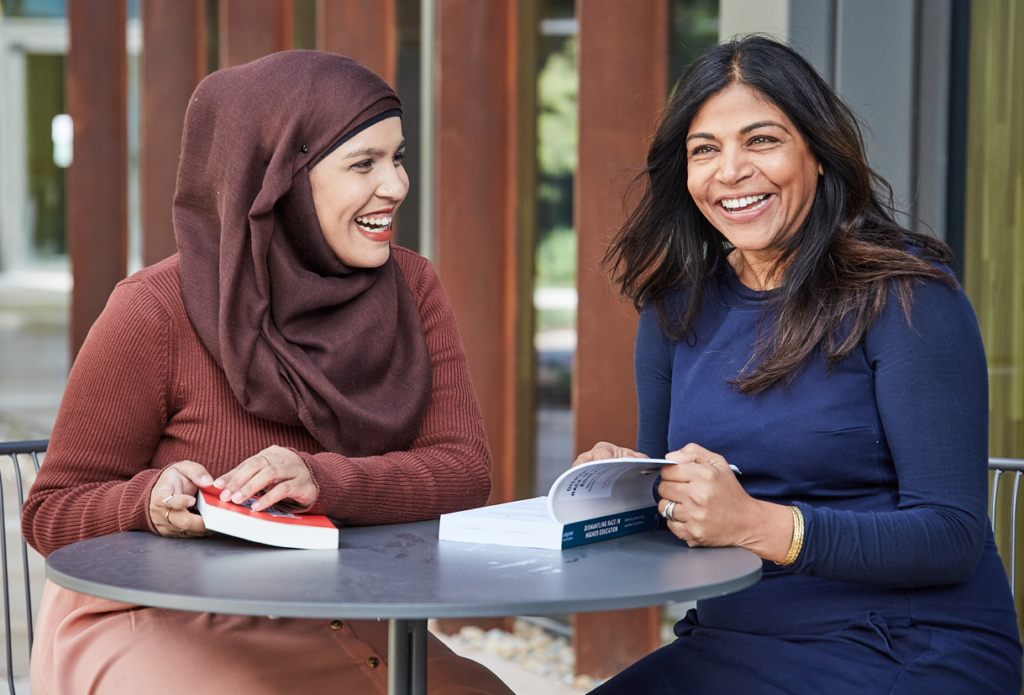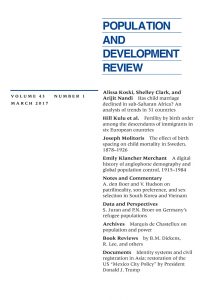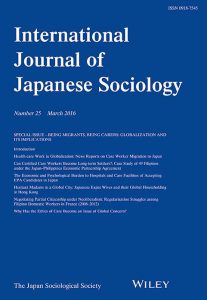So, what’s it like being Muslim in Academia? A case of oppressive institutions and Islamophobic landscapes.
by Maisha Islam, University of Winchester, UK · Published · Updated

In this blog, Maisha Islam tells us about her recent Sociology Compass publication where she and her co-author Arif Mahmud take readers on a journey to better understand the lived experiences of Muslim academics navigating through the terrains of UK academia.
There is much to learn and get accustomed to as an early career researcher within academia. From the competitive world of publishing, to securing funding or research grants, teaching on numerous courses at a time, and supporting students sometimes day and night. Despite this, there is usually no metaphorical map to guide you – add this on to lacking support mechanisms in place and you’ve got the perfect storm for researchers and professionals in trying to navigate such terrains. In addition to this, we see evidence of academia as often being wired to colonial ways of working. This includes, but is not limited to, its role in justifying scientific racism in 18th to 19th century Europe, and the legacies of perpetuating and reproducing knowledge systems that have systematically undermined the contributions of historically marginalised communities (Aiyad, 2021). The authors of this recently published article, as two early career researchers occupying historically ‘othered’ positionalities and bodies, found a paradoxical comfort in knowing that the implicit and explicit Islamophobic experiences we individually faced in the academy (marred also by our gender and race) were not being felt in isolation; that in these experiences of exclusion is where we were able to find connection. However, the underlying issue we realised was that too few really and truly seemed to be aware of the challenges facing Muslim academics in UK Higher Education (HE), particularly those getting their careers started.
Muslim academics – Missing in Action or apathetical attitudes?
As noted by Ramadan (2017; 2021), the experience of Muslim academics and how we relate to our academic identities is woefully neglected, particularly where mainstream conceptualisations of academic identity fail to capture the meanings Muslim staff would associate to their roles in academia. Whilst we see an increase in literature looking into the experiences of racially minoritized academics (Arday, 2020; Bhopal et al., 2016), the limited data and research focusing on this from the perspective of religion, and particularly Islam, is striking – though not surprising.
Religion, as a marker of diversity, remains relatively under-examined, both in the field of sociology and education (Aune & Stevenson, 2017; Park & Bowman, 2015). So, whether or not Muslim academics are seen to be absent in the numbers that make up staffing profiles or, as Arif and I believe, are regarded apathetically is neither here nor there – the bottom line is that as a sector, we do not hear these incredibly minoritised and marginalised voices. Available data on the profile of Muslim staff members in UK HE could also be seen as incomplete (Advance HE, 2021), given that institutions have the option of returning data related to staff religion and belief to the UK Higher Education Statistics Agency.
With little meaningful quantitative and qualitative insight into Muslim student and staff experience, we were keen to make our mark and represent similar others in UK HE.
Our auto-ethnographical contribution
Our frustrations are what led us to each other, so we hopped on a virtual call to unpick our academic identities and feelings of belongingness in the academy. The conversation was raw; we spoke at length about our relative experiences of symbolic violence, racism, Islamophobia and our hopes for the future of academia. Importantly, the conversation felt safe – an often-uncommon feeling for us. As detailed in our article, this is due to a sense of fragility felt with feeling a sense of belonging in the spaces that we occupy. There is also a scepticism as to whether or not our stories will be deemed valid in these hegemonic structures. Further, our auto-ethnographic approach demanded a level of vulnerability from us as we exposed some of our inner-most feelings; a fear ensuing that our experiences would be misunderstood.
To shed light to some of these issues, we used this auto-ethnographical approach and combined it with a Critical Race Theory (CRT) lens. In doing so, we aimed to contribute to the dearth of literature alluded to regarding Muslim academic experience, but also to make sense of our complex experiences. CRT as a scholarly framework aims to privilege those voices that have been traditionally excluded from knowledge systems. Whilst CRT centralises race in its analyses, it also regards the importance of taking an intersectional approach (see this TED talk for a primer on some of the work of Critical Race theorist, Kimberle Crenshaw). We draw on this framework with a particular nod towards the use of storytelling. In this context, (counter)storytelling functioned as a vehicle for us to challenge the majoritarian frames commonly understood in the Ivory Tower of academia (i.e. White, secular and other forms of privileged positions surrounding race, class and gender that have typically excluded our narratives).
Our story takes the form of a reflective dialogue where we take readers through the relative and collective tensions we often find ourselves in. From having to constantly fight for and reassert the importance of provision and representation of Muslim-specific needs, to having our academic ability questioned by colleagues. The fatigue emphasised in our dialogue through simply being Muslim in the academy highlights the lack of empathy, care and often contempt shown towards Muslims in the academy. As early career researchers passionate in advancing social justice in HE, we believe ‘the tiredness and trauma of these experiences have suppressed so much more’ of our potential.
From contempt to care
So, how does our article suggest we move forward from here? We realise that feelings of belongingness are often on a spectrum, particularly where we detail the supportive relationships we feel so lucky to have found in academia. However, we hope our narrative and article evoke action from the various actors in our institutional systems, and that our dialogue has made a theoretical contribution to the sociological field. Below are some key take home messages for readers to consider from our article:
- In an age where Muslims globally face the increasing and continuous threat of surveillance and scrutiny, take the time to actively listen to your Muslim colleagues. Through sharing our stories, we disrupt the status quo and see the world through the ‘other’ – open yourself up to this opportunity and be sure to come away with an action; storytelling is meaningless unless it moves you towards equitable change (Rodriguez, 2010).
- Autoethnography has often come under scrutiny in relation to its legitimacy and practicalities. We found this experience to be healing and took inspiration from other marginalized researchers in the field who have used this method. We therefore encourage our fellow Muslim sisters and brothers in the academy to utilise similar approaches. Indeed, any critical researcher should regard the use of autoethnography as an integral research method to adopt in their work, to not only make sense of their identity but to strengthen their practice.
- Finally, let us not underestimate the place of religion in our HE systems when it comes to deciphering the approaches we take to achieving equity. In many spaces of the academy, we have reached the ability of broaching issues related to gender, race and class with an active nature, realising the integral role it plays in shaping the outcomes and experience of individuals. For those in more senior and privileged positions within our institutions, acknowledging religion with a similar level of importance will open a whole new world of possibilities for the social justice endeavours we are needing to tackle.
References
Advance HE. (2021). Equality in higher education: Staff statistical report 2021. https://www.advance-he.ac.uk/knowledge-hub/equality-higher-education-statistical-report-2021
Aiyad, M. (2021). On Decolonizing Academia. The Footnote. https://the-footnote.org/2021/10/04/on-decolonizing-academia/
Arday, J. (2020). Fighting the tide: Understanding the difficulties facing Black, Asian and Minority Ethnic (BAME) Doctoral Students’ pursuing a career in Academia. Educational Philosophy and Theory. https://doi.org/10.1080/00131857.2020.1777640
Aune, K., & Stevenson, J. (2017). Religion and Higher Education in Europe and North America. Routledge. https://doi.org/10.4324/9781315623894
Bhopal, K., Brown, H., & Jackson, J. (2016). BME academic flight from UK to overseas higher education: aspects of marginalisation and exclusion. British Educational Research Journal, 42(2), 240–257. https://doi.org/10.1002/berj.3204
Mahmud, A., & Islam, M. (2022). Intersectional oppression: A reflexive dialogue between Muslim academics and their experiences of Islamophobia and exclusion in UK Higher Education. Sociology Compass, e13041. https://doi.org/10.1111/soc4.13041
Park, J. J., & Bowman, N. A. (2015). Religion as Bridging or Bonding Social Capital: Race, Religion, and Cross-racial Interaction for College Students. Sociology of Education, 88(1), 20–37. https://doi.org/10.1177/0038040714560172
Ramadan, I. (2017). Experiences of Muslim academics in UK Higher Education Institutions [University of Edinburgh]. https://era.ed.ac.uk/handle/1842/31350
Ramadan, I. (2021). When faith intersects with gender: the challenges and successes in the experiences of Muslim women academics. Gender and Education. https://doi.org/10.1080/09540253.2021.1893664
Rodriguez, D. (2010). Storytelling in the Field: Race, Method, and the Empowerment of Latina College Students. Cultural Studies ↔ Critical Methodologies, 10(6), 491–507. https://doi.org/10.1177/1532708610365481




1540-6237/asset/SSSA_Logo-RGB.jpg?v=1&s=c337bd297fd542da89c4e342754f2e91c5d6302e)
1099-0860/asset/NCB_logo.gif?v=1&s=40edfd0d901b2daf894ae7a3b2371eabd628edef)